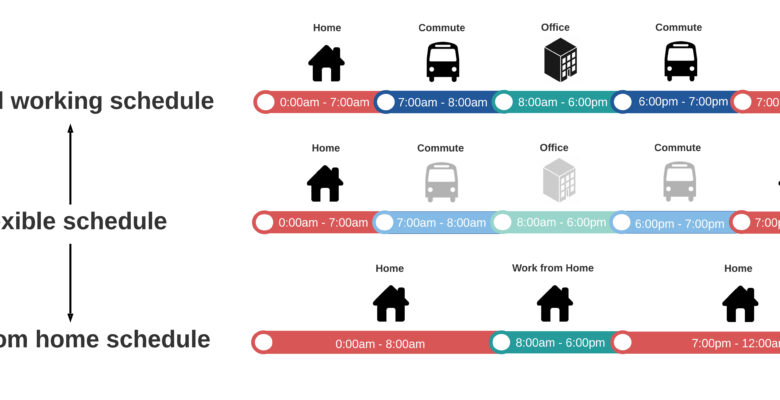The COVID-19 public health crisis has affected many aspects of daily living and working behavior, impacting carbon footprint. This research aims to explore adaptive working behavior and its direct and quantifiable environmental impacts. It studies various working and commuting behavior scenarios on energy consumption and the carbon footprint of commuting and building operations. The paper develops a methodology for calculating the impacts of variable working patterns for a North American business. We then conduct two case studies in our own Atlanta and Vancouver studios to model the specific changes in behavior and resulting carbon implications. Considering both buildings and commute patterns, the analysis shows the impact of behavior change on reducing the carbon emission profile of a city, which varies by location. Atlanta can experience more reduction in CO2 emission related to both building operation and transportation due to the higher utility of the electric grid system in the city and heavy reliance on driving cars, compared to Vancouver. The contribution of this work is the methodology for calculating and comparing carbon impacts of different results from home scenarios and the data from two case studies. The work has short-term implications for understanding the impacts of the COVID-19 quarantine and longer-term consequences
due to increasing telework demand.
This article originally appeared in Vol 13.01 of the Perkins&Will Research Journal. CLICK HERE to see the whole article.

